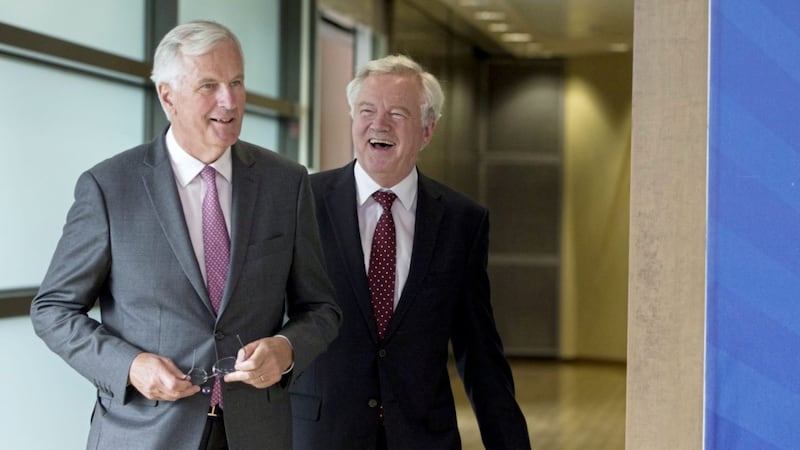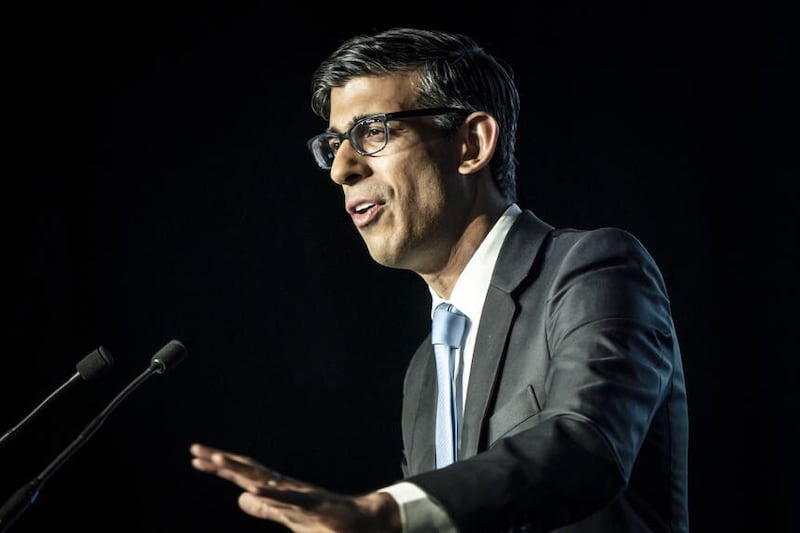Brexit secretary David Davis has said Britain will not engage in a "regulatory race-to-the-bottom" after it leaves the European Union, as he said he was a "determined optimist" over the exit negotiations.
In a keynote address in Washington DC, Mr Davis struck an upbeat tone despite the International Trade Secretary Liam Fox warning that Brussels must not be allowed to blackmail the UK into agreeing a divorce bill as the price for starting trade talks.
He said the UK's "overarching aim" in the Brexit talks was to secure a "successful future partnership" with the EU which delivers the "most seamless and frictionless trade in goods and services possible".
"There are many that doubt this is possible but when I spoke to my European counterpart Michel Barnier I said to him once: 'The pessimist sees difficulty in every opportunity, the optimist sees opportunity in every difficulty'," he said.
"And as ever on that front I am a determined optimist in this – we will get to those opportunities.
"Because fundamentally I believe that a good deal is in the interests of both the United Kingdom and the European Union and of the entire global community."
He said post-Brexit Britain would have an opportunity to lead a "race-to-the top" and act as a "global leader raising standards across the world", stating that a regulatory race-to-the-bottom would mean "lower global standards for consumers and poorer prospects for our workers".
Mr Davis used the speech to champion free trade as the way to tackle the "greatest social and economic challenges" facing the world.
He said: "My message is clear – the answer to these challenges is not to turn inwards and become isolationist.
"The answer to the economic problems of the west cannot be to turn our back on globalisation and trade – it's to lead the world forward once again."
On Thursday, Mr Davis said the third round of Brexit talks had seen "tough" discussions regarding the size of the UK's exit bill.
The EU's chief negotiator Michel Barnier gave a negative assessment of the negotiations, saying there had been no "decisive progress" on key issues.
He said the two sides were still "quite far" away from meeting the test of making sufficient progress for talks on future trading arrangements to begin in October.
Taking questions after the speech, Mr Davis said he had ruled nothing in or out regarding whether the UK would pay part of its exit bill during a transition period.
He said: "What's been going on is that we have got to the point today where there has been some pressure over the last couple of days, pressure over the question of whether we pay a divorce bill, a separation bill, and if so what it is.
"And there have been stories flying around, some of them emanating from Paris, that maybe one way of doing this is to pay for the transition period and so on. Well, I can't comment because we haven't started that negotiation.
"I'm not ruling anything in or out. I never do. It's an idea that's been floated around."








